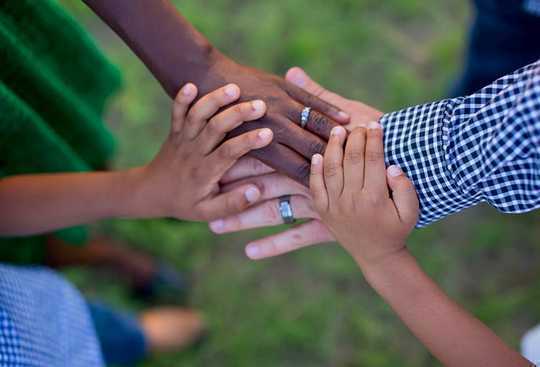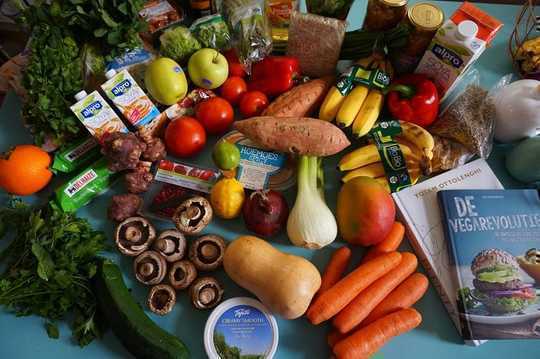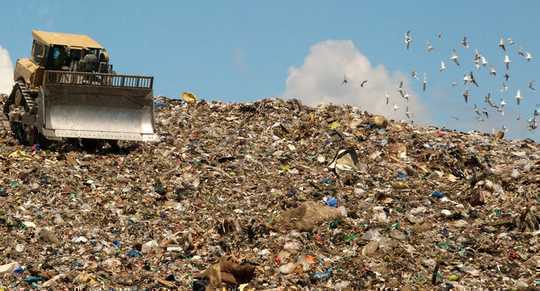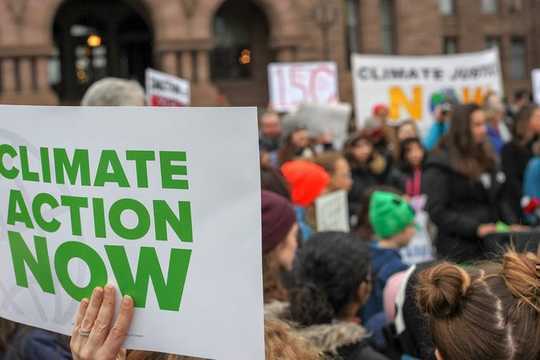 Household actions lead to changes in collective behaviour and are an essential part of social movements. (Pexels)
Household actions lead to changes in collective behaviour and are an essential part of social movements. (Pexels)
Hidden among all of the troubling environmental headlines from 2019 — and let’s face it, there were plenty — was one encouraging sign: the world is waking up to the reality of climate change.
So now what?
While many climate solutions require leadership from governments, we also need changes within regular households, which are collectively responsible for 42 per cent of Canada’s greenhouse-gas emissions. In the U.S., where energy exports are proportionally smaller, the figure is closer to 80 per cent.
We have drawn on our expertise as scientists in three diverse fields (environment, energy and psychology) to assemble a message of action and empowerment that we feel is necessary to address the challenge of climate change.
Get The Latest By Email
As the new decade begins, we offer five questions designed to guide discussions of climate action in your household.
1. What are you eating?
Food production accounts for 23 per cent of human greenhouse-gas emissions. Experts say that confronting climate change will ultimately require adjusting our diets. Eating lower on the food chain — or eliminating meat and dairy entirely — is one of the most effective carbon-cutting changes you can make in your household.
 A plant-based diet is healthy, ethical and an effective carbon-cutting adjustment for a household. (Pixabay)
A plant-based diet is healthy, ethical and an effective carbon-cutting adjustment for a household. (Pixabay)
While there are many compelling reasons to eat locally, what you eat is more important than where it comes from. One influential U.S. study showed that transportation represents just 11 per cent of the life-cycle emissions of household food consumption (a life-cycle analysis considers all aspects of production, transportation, use and disposal), compared to 83 per cent for production. So if the thought of eliminating meat altogether is just not fathomable, consider buying products that use lower-emissions production processes such as regenerative grazing.
Discuss what dietary changes your household can make and how they contribute to the climate-change solution. Children learn best when adults link cause with effect: if we collectively choose to eat less meat, we can reduce the carbon emissions that contribute to climate change.
2. What transportation do you use?
Globally, transportation accounts for 23 per cent of human emissions. The numbers are higher in Canada (28 per cent) and the U.S. (29 per cent), where fuel-hungry trucks and SUVs dominate the market.
Start by biking, carpooling and taking public transportation as often as possible. Live car-free if you can. If driving is a must, focus on fuel consumption. Choose smaller, best-in-class vehicles and pay attention to distance travelled.
 Experts cite air travel as the most carbon-intensive individual activity. One transatlantic round-trip flight produces half the emissions (per passenger) of operating a car for a year. (Wikimedia Commons)
Experts cite air travel as the most carbon-intensive individual activity. One transatlantic round-trip flight produces half the emissions (per passenger) of operating a car for a year. (Wikimedia Commons)
Air transportation is a major contributor to carbon emissions. One round-trip transatlantic flight — Denver to Paris, for example — produces the equivalent of 2.54 tonnes of carbon dioxide per passenger. That’s half the emissions of a car driven for a year.
When planning your next family vacation, carefully consider the need for flights. Vacation locally or opt for a shorter flight.
3. How does your home contribute?
Households use energy for heating, cooling, lighting and appliances. Energy consumption is not the same as carbon emissions — the relationship depends on how your home’s electricity and heat are generated — but it’s still a great target.
Heating, both space and water, makes up 80 per cent of residential energy consumption in Canada. Actions that conserve household heat can lower emissions.
These can range from small things like washing clothes in cold water to big steps like moving to a smaller, more energy-efficient home. Retrofits aimed at increasing energy efficiency are also worth considering, especially those matched with local financial incentives. A home-energy audit will help you choose the most effective targets.
4. What do you throw out?
On a per-capita basis, North Americans produce the highest average amount of waste in the world. Much can be done to curb your family’s disposable habits.
Everyone knows the mantra: reduce, re-use, recycle. However, the recycling industry is complex and much of what we put in recycling bins ends up in landfills.
Priortizing the reduce and re-use parts of the mantra will have a lasting impact on the environment. To reduce, plan carefully and buy only what you need. Buying less stuff not only saves money, it reduces emissions from packaging, transportation and production.
 North Americans produce more waste per capita than anyone else on the planet. Most of it ends up in landfills. (Justin Ritchie/flickr), CC BY
North Americans produce more waste per capita than anyone else on the planet. Most of it ends up in landfills. (Justin Ritchie/flickr), CC BY
Families should also emphasize re-using goods. Take steps to re-purpose or exchange items, both inside the home and within your community. There are many creative ideas out there.
5. Who can you influence?
As parents, we recognize that making the time for change can be difficult. But changes can begin with small steps, like educating yourself on the evidence, causes and effects of climate change. Children are inherently curious and want to learn too. Make sure that they learn from credible sources.
 A global climate movement - inspired by children and fuelled by families - is under way. (Pixabay)
A global climate movement - inspired by children and fuelled by families - is under way. (Pixabay)
Children are constant observers of adults’ choices. Many kids will notice when an adult makes an effort to reduce waste and carbon emissions. To emphasize these changes further, explain what your actions and choices mean for the environment.
You can also show children how individuals can mobilize and inspire change. The world has just witnessed a 16-year-old launch a global climate movement that is inspiring millions.
Change is the product of individual actions
Some claim individual actions won’t make a difference or that domestic changes don’t matter if others are not following suit. In addition to being incredibly disheartening, such views ignore the fact that our current crisis is the product of billions of individual decisions. Household actions lead to changes in collective behaviour and are an essential part of social movements.
A more compelling argument is that the focus belongs on altering the systems (economic and political) that pose barriers to personal changes. We agree! But it’s not a zero-sum game and transformations must happen on both fronts.
There is reason for hope. Family-based changes can shape the environmental landscape for future generations. We already have much of the technology and know-how required to transition towards a more sustainable society.
We just need to get started. And it can start with our families.
About The Author
![]()
Greg McDermid, Professor, Department of Geography, University of Calgary; Joule A Bergerson, Associate Professor in Chemical and Petroleum Engineering and Canada Research Chair in Energy Technology Assessment, University of Calgary, and Sheri Madigan, Assistant Professor, Canada Research Chair in Determinants of Child Development, Owerko Centre at the Alberta Children’s Hospital Research Institute, University of Calgary
This article is republished from The Conversation under a Creative Commons license. Read the original article.
books_solutions







